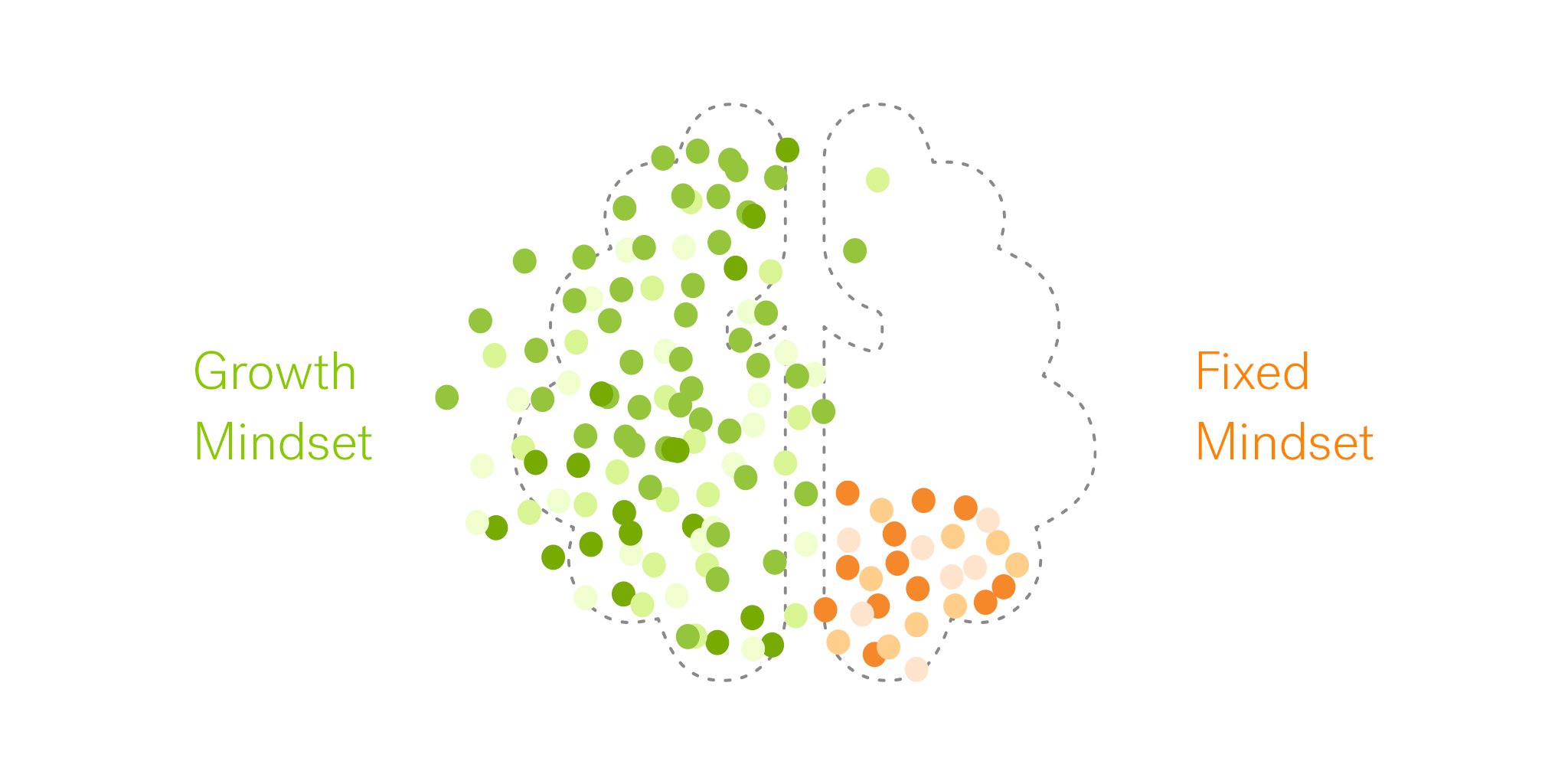Growth-mindset language is (still) better for employer brand

In late 2016, Textio and the diversity strategy firm Paradigm identified an interesting trend: Using growth-mindset language in your talent content had a clear, positive impact on who and how you hire. Fixed-mindset language, on the other hand, had a statistically significant negative impact.
Turns out it wasn’t just a trend. Language data surfaced by Textio’s augmented writing platform shows that still today, job posts with at least one growth-mindset phrase fill an average of eight days faster than those with no such terms. Posts with two or more growth-mindset phrases fill an average of eleven days faster.
Language is always evolving, and the impact of those original phrases has changed since 2016. But growth-mindset language as a whole is still helping companies show up as the organizations they want to be in the market. And fixed-mindset language is still skewing employer reputations for the worse.
Growth mindset is shaping company cultures
Growth and fixed mindsets, terms popularized by Stanford professor of psychology Carol Dweck, describe the belief that a person’s abilities are either innate (fixed mindset) or learned (growth mindset).
Growth mindset as a concept has caught fire in part because of what it means for an organization’s culture. When a company uses a lot of growth-mindset language, it reflects a culture that emphasizes learning from others, and from your own mistakes, so you can move quickly and find the right path forward.
Using growth-mindset language has especially taken hold at companies that are innovating, including Textio customers. Some have substantially changed their messaging to include more growth-oriented language.
The words have changed, but the impact remains
As often happens with language, when terms become more well-known, their interpretations evolve. The mainstreaming of growth mindset has caused a cultural language shift.
In the four years since Textio first identified the growth-mindset trend, only a portion of the original phrases that had a favorable impact on time to fill still do. Some of those previous words now have no impact, positive or negative, on how fast a role fills. But Textio’s predictive engine is always finding fresh language insights, and has uncovered other growth-mindset phrases that do currently make a difference. Among the new terms that resonate now are opportunity to grow, work hard, persevere, and forward thinker.
Fixed-mindset language hints at parts of company culture that can turn job seekers off. While using the word rockstar in your job post may have gotten the bulk of bad press, other cringeworthy terms like superhero or even genius, both fixed-mindset phrases, can be just as damaging to your employer brand. Ditto high performer, expert, and natural talent, all currently showing a negative impact. Can you feel the stagnation in these words? Arianna Huffington famously declared that Uber would no longer hire “brilliant jerks”—it’s no wonder that brilliant now has a negative impact in recruiting content.
Change your language, change your employer brand
By changing the language your company uses, you can change the people you attract and hire, and perpetuate the culture you want at your company. While it’s difficult to stay on top of language change, it’s necessary. It creates cultural accountability, and shines a light on what your company truly values. Make sure your content is reflecting the employer brand you want for your company.